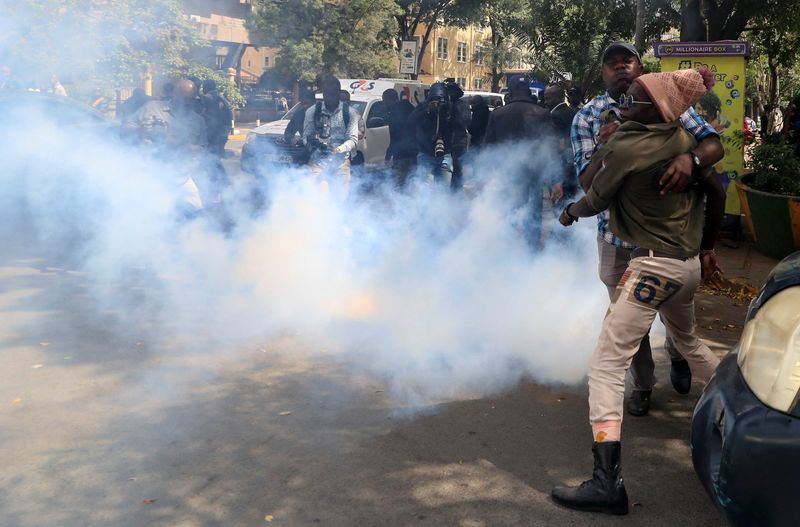
In a tumultuous scene unfolding on Tuesday in Jevanjee Gardens, law enforcement officers utilized tear gas in an attempt to dissolve a fervent group of activists rallying against the proposed Finance Bill of 2023. The protest, which culminated in the arrest of numerous demonstrators, was an organized venture brought to life by a unified consortium of diverse lobby groups.
An atmosphere of defiance was tangible as the activists fervently brandished placards, displaying unequivocal messages that depicted the proposed tax measures contained within the controversial Finance Bill 2023 as having catastrophic implications for the nation’s economy. These individuals voiced their concerns with zealous shouts and displays of civil disobedience, explicitly illustrating their sentiment that the impending legislation would further exacerbate the already fragile economic situation.
One activist, embodying the collective sentiment of the gathered crowd, was heard passionately proclaiming, “We don’t want it, Kenyans don’t want it, just withdraw it because it will kill the already bleeding economy.” This vehement declaration, however, was abruptly interrupted when police forces intervened, employing tear gas to scatter the gathered assembly.
At the heart of the controversy, President William Ruto stands resolutely, staunchly supporting the controversial legislation. Defying the growing tide of opposition, President Ruto has made a bold vow that the Finance Bill will indeed pass, and he went so far as to openly challenge any member of the legislative assembly to dare oppose it. His audacious statement underlined his firm belief in the bill’s potential benefits.
“I want to see which MP will oppose this bill that is out to create job opportunities for Kenyans through the construction of houses across the country,” President Ruto declared. His statement reflects a belief that the bill, though contentious, can usher in significant economic opportunities, particularly in the housing sector.
However, the crux of the controversy surrounding the bill lies in a contentious clause proposing a mandatory 3 percent housing levy for all salaried employees, a measure set to be in place for a staggering period of seven years. This provision, despite President Ruto’s claims of job creation, has stirred significant unrest, culminating in the explosive protest witnessed on Tuesday.


















